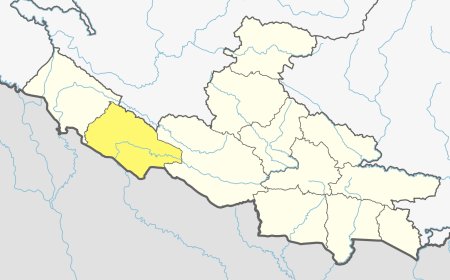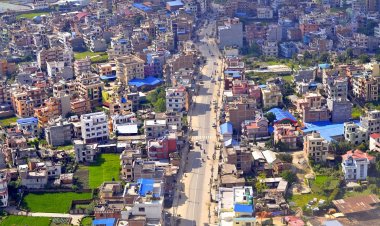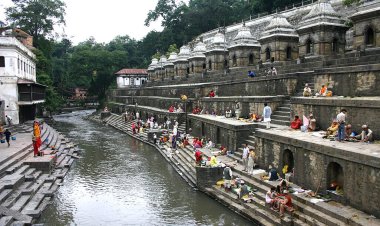How can we prevent brain drain from Nepal?
Learn how to prevent brain drain from Nepal by implementing solutions for educating, employing, and promoting economic growth. Discover effective strategies for retaining skilled workers and professionals in the country.

Brain drain, also known as the emigration of highly skilled and educated individuals, can have negative impacts on the spending country, including the loss of human capitals and potential for economic development. Nepal has faced significant brain drain, with many highly skilled and educated individuals leaving the country in search of better opportunities abroad. Here are some potential strategies that the government and communities in Nepal could implement to address brain drain:
-
Promote economic development
One of the main drivers of brain drain is the search for better economic opportunities. By promoting economic development in Nepal, the government can create more high-skilled jobs and increase incomes for citizens, making it more attractive for people to stay in the country. This could involve investing in infrastructure, education, and training programs to build a skilled workforce, as well as promoting entrepreneurship and supporting small and medium-sized businesses.
-
Foster a culture of innovation and entrepreneurship
Encouraging innovation and entrepreneurship can create new job opportunities and help retain highly skilled individuals within the country. The government can support this by investing in research and development, providing funding and resources for startups, and establishing incubator programs to nurture new ideas.
-
Provide access to quality education and training
Ensuring that citizens have access to quality education and training can help to build a skilled workforce and increase the competitiveness of the domestic job market. The government can invest in education and training programs, particularly in fields such as science, technology, engineering, and mathematics, to meet the needs of the modern economy.
-
Address social issues
Some people may feel the need to migrate due to social issues such as discrimination, persecution, or lack of access to basic services like healthcare and education. The government can work to address these issues by implementing policies that promote equality and inclusivity, and by providing access to quality services for all citizens.
-
Strengthen community ties
Strong social bonds and a sense of belonging can help keep people connected to their communities and discourage them from leaving. The government and community leaders can work to build and strengthen these ties by promoting community involvement and engagement, and by supporting initiatives that bring people together.
-
Support returning professionals
Some individuals who have left Nepal may decide to return to the country. It is important that the government and communities provide support for these returnees, such as through reintegration programs and access to resources and opportunities. This can help make the transition back to life in Nepal smoother and more successful.
-
Promote policies that support the retention of Skilled Workers
The government can implement policies that make it easier for highly skilled and educated individuals to stay in the country, such as through visa and immigration reforms, tax incentives, or other forms of support.
-
Enhance international collaboration and partnerships
Working with other countries and international organizations can help to bring new opportunities and resources to Nepal, making it more attractive for skilled workers to stay. The government can work to build partnerships and collaborations with organizations that can provide support and resources for research, education, and other initiatives.
-
Encourage the private sector to invest in human capital
The private sector can play a role in retaining skilled workers by investing in employee training and development, as well as by offering competitive salaries and benefits. The government can encourage private sector investment in human capital by providing incentives and support.
-
Improve the overall quality of life
A high quality of life can be a major factor in attracting and retaining skilled workers. The government can work to improve the overall quality of life in Nepal by investing in infrastructure, improving access to healthcare and education, and promoting a healthy and safe living environment.
-
Support remote work and digital connectivity
With the rise of remote work and digital connectivity, it is becoming increasingly possible for skilled workers to live and work from anywhere. The government can work to improve digital infrastructure and support the growth of remote work opportunities within the country, making it easier for skilled workers to stay and contribute to the economy.
-
Foster a culture of innovation and creativity
Encouraging a culture of innovation and creativity can help to create new opportunities and make Nepal a more attractive place for skilled workers. The government can support this by investing in research and development, promoting entrepreneurship, and supporting initiatives that encourage creativity and innovation.
-
Promote the value of contributing to Nepal's development
It is important to highlight the value of staying in Nepal and contributing to the country's development. The government can work to promote the positive impact that skilled workers can have on the country, and encourage a sense of national pride and responsibility.
-
Implement mentorship and networking programs
Providing access to mentorship and networking opportunities can help to build connections and support for skilled workers within the country. The government can work with professional organizations and industry groups to implement mentorship programs and other initiatives that bring skilled workers together and provide support for their professional development.
-
Encourage the growth of the service sector
The service sector can be a major contributor to the economy and a source of employment for skilled workers. The government can encourage the growth of the service sector by providing support and resources for businesses in this sector, and by investing in the development of new service industries.
-
Support the development of specialized industries
By focusing on the development of specialized industries, the government can help to create new job opportunities and build expertise within the country. This could include investing in the development of new technologies, supporting the growth of specialized manufacturing industries, or promoting the development of niche service sectors.
-
Encourage the development of rural communities
Many people may choose to migrate due to a lack of opportunities in rural areas. By supporting the development of rural communities and providing access to resources and opportunities, the government can help to create a more attractive environment for skilled workers to stay in these areas. This could include investing in infrastructure, promoting entrepreneurship, and providing access to education and training programs.
In conclusion, while it is not easy to completely stop brain drain, the government and communities in Nepal can work to address the root causes of emigration and provide support and opportunities for citizens within the country. This can help to make Nepal a more attractive place to live and work, encouraging highly skilled and educated individuals to stay and contribute to the country's development.
What's Your Reaction?








































































































